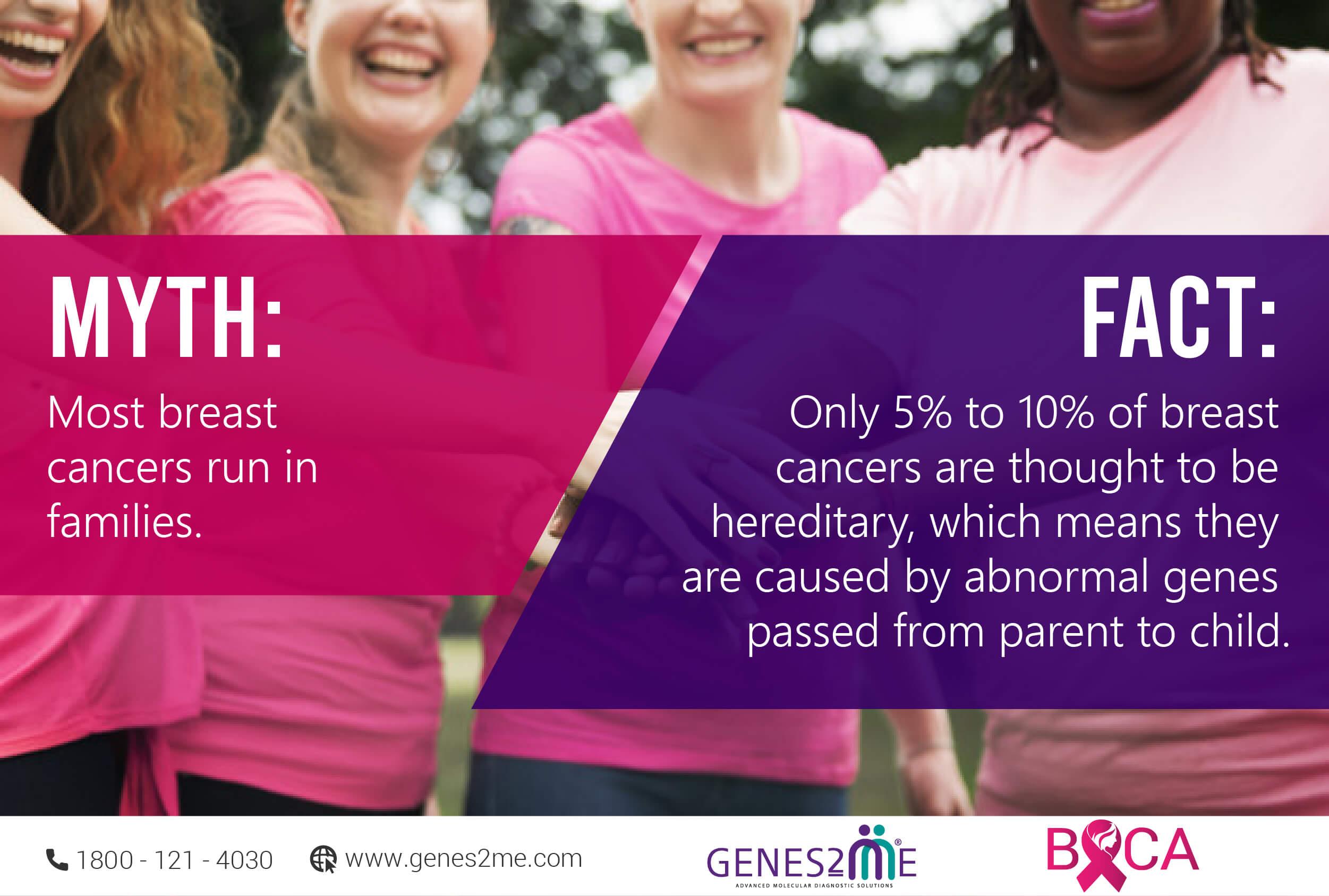Inherited genetic variation or mutation can cause hereditary cancer or germline cancer. Any individual carrying mutations/variations for hereditary cancer are at high risk for the development of tumors at an early age. This panel covers ovarian cancer, endocrine cancer, Gynecological Cancer, Lynch Syndrome, Pancreatic Cancer, Nervous System Cancer, Prostate Cancer, Renal Cancer, Skin Cancer/ Melanoma.
Every individual has some probability of developing the life threating disease at some time during his life Usually cancers can be inherited in two ways i.e. it may be genetically predisposed or might be caused due to environmental factors, which may include your lifestyle, or eating behavior and many more.
Gene mutations that might occur in one or a few cells of the body are one of the major reasons of cancer. Genetic mutations or hereditary mutation are inherited from one generation to the other and they may also be referred as germline mutations while acquired mutations are only present in some of the body’s cells, and they are not passed on from one generation to the other. However, individuals who carry genetic mutations do not necessarily get cancer, but the probability of developing cancer at is higher than anyone. Who should be tested?
• Someone with a personal history of early-onset cancer, rare cancer, bilateral cancer, or multiple primary cancers • Someone with a positive family history of multiple generations of cancers. • Cancer diagnosed before age 50 • Cancer in a of a set of paired organs • Rare Cancer (ovarian, pancreatic, metastatic prostate, intraductal prostate, medullary thyroid, triple-negative breast or male breast cancer) • 10+ gastrointestinal polyps • Breast or prostate cancer (Gleason score >7)
Genetic testing is easily available for the hereditary cancers. If there is any family history of cancer or any kind of personal history of that individual, or may be if one would like to know more about whether a family member has an increased risk of developing cancer, then should go for a cancer risk assessment, and genetic counseling and genetic testing.
Understanding the result: A positive test result • It means there is a change in a particular gene which indicates that a person is a carrier of a particular genetic mutation and has increased risk of developing the disease in the future. However, it cannot predict the exact risk of developing a disorder. • Gives information about family and personal health history.
A negative test result • It means that there is no change in the gene which indicates that a person is not affected by a particular disorder and does not have an increased risk of developing it. • There are chances that other genetic abnormalities might be present in the patient (including Copy Number Variations, Methylation changes, etc.) which are beyond the scope of this test and would not be picked up in this test. Further testing might be required to confirm a negative result.
Uninformative test result • It occurs because every individual has common natural variations in their DNA that do not affect health. It cannot confirm a specific diagnosis also it cannot indicate whether a person has an increased risk of developing a disorder.













No Comments